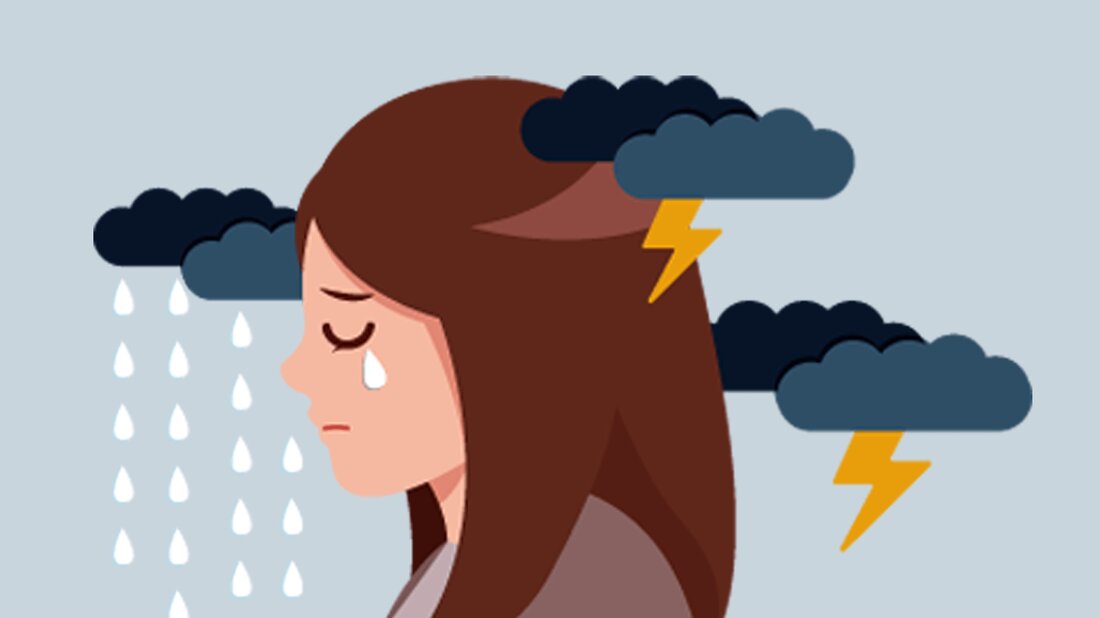PTSD - Naturopathic approaches to post-traumatic stress disorders
Post-traumatic stress disorder (PTSD) is a growing problem for many patients. Trauma can be a life-changing event that can impact a person's ability to participate in a joyful life and normal daily activities and is not uncommon. Approximately 70% of American adults have experienced at least one traumatic event in their lives. It is completely natural to feel fear during a traumatic event, and almost everyone will experience some level of reaction afterward. Not everyone who experiences a traumatic event experiences lasting challenges, however, approximately 20% of those who report a traumatic event develop PTSD. Many people associate PTSD with military personnel,...

PTSD - Naturopathic approaches to post-traumatic stress disorders
Post-traumatic stress disorder (PTSD) is a growing problem for many patients. Trauma can be a life-changing event that can impact a person's ability to participate in a joyful life and normal daily activities and is not uncommon. Approximately 70% of American adults have experienced at least one traumatic event in their lives. It is completely natural to feel fear during a traumatic event, and almost everyone will experience some level of reaction afterward. Not everyone who experiences a traumatic event experiences lasting challenges, however, approximately 20% of those who report a traumatic event develop PTSD.
Many people associate PTSD with military personnel who have been in combat situations. Although PTSD is common in this population, it certainly does not discriminate. PTSD can affect children and adults, old and young, male and female (although women are twice as likely as men to develop the disease). Those who develop PTSD may feel scared, anxious, or stressed even when there is no inherent danger. People who develop PTSD may feel very nervous and may react strongly to sounds, sights, and situations. They may have trouble sleeping, have disturbing memories, and avoid anything that reminds them of the event. ((link removed))
PTSD is an extremely complex condition that requires an equally comprehensive treatment plan to provide the best chance of lasting recovery. 39% of people diagnosed with PTSD seek complementary and integrative health approaches. ((Link removed)) Naturopaths are uniquely trained to provide PTSD treatment options that include a variety of therapeutic options. A naturopathic approach to treating and managing PTSD may include:
Mind-body medicine
Mind-body medicine is one of the most researched tools for treating PTSD. There are a number of therapies that fall into this category, but not all have been shown to be empirically effective. Some techniques proven to help with PTSD include cognitive behavioral therapy and eye movement desensitization and reprocessing, both of which are used by the U.S. Department of Veterans Affairs as treatment options for service members with PTSD. ((link removed))
Cognitive behavioral therapy
At its core, cognitive behavioral therapy (CBT) is a combination of the areas of cognitive and behavioral psychology. It is based on the idea that psychological concerns are often manifested and maintained through distorted thoughts and maladaptive behavior. The sessions focus on current problems and promote the development of solutions to these problems. The aim of therapy is to support the client in developing and implementing effective strategies to reduce psychological distress. Research has shown that CBT can significantly reduce symptoms of PTSD. ((link removed))
Desensitization and reprocessing of eye movements
Eye movement desensitization and reprocessing (EMDR) was developed to help people deal with the emotional distress that often accompanies a traumatic event. The goal of EMDR therapy is to focus less on the traumatic event and more on the disturbing emotions and symptoms that followed the event. Research on EMDR is plentiful. Scientific research has shown that after just three 90-minute EMDR sessions, up to 90% of PTSD patients with trauma had overcome the disorder. Further research found that all single trauma victims and 77% of multiple trauma victims overcame their PTSD after an average of six therapy sessions. ((Link removed), (Link removed), (Link removed))
Botanical medicine
The current understanding of the development of PTSD involves dysregulation in a branch of the nervous system known as the autonomic nervous system (ANS). The ANS plays a direct role in the body's response to stress. There are a number of herbal medicines that can affect the stress response (adaptogens) and the balance of the nervous system (nerves). Although certainly not a complete list, herbal formulas containing herbs such as Eleuthero (Eleutherococcus senticosus), licorice (Glycyrrhiza glabra), wild yam (Dioscorea villosa), Schisandra (Schisandra chinensis), Oats (Avena sativa), Holy Basil (Ocimum sanctum) and Rhodiola (Rhodiola rosea) can be particularly useful. (Source)
Energy Alignment Therapies
Therapies that utilize the body's energetic pathways and aim to align and balance them may also be useful in the naturopathic treatment of PTSD. The most common include craniosacral therapy, homeopathy and acupuncture.
Craniosacral therapy
Craniosacral therapy is a practical approach that focuses on gently removing restrictions within the meningeal membrane system and all bones of the skull and spine, including the sacrum and coccyx to which these membranes are attached. This technique is essentially risk-free in terms of potential dangers or negative side effects. Studies have been conducted specifically evaluating the effectiveness of craniosacral therapy in treating PTSD. Research shows that craniosacral therapy can positively impact PTSD symptoms. ((Link removed), (Link removed))
homeopathy
Homeopathy is a discrete medical system developed over 200 years ago by the German physician Samuel Hahnemann. Homeopathic medicine has its own diagnostic and prescription methods. The homeopathic approach takes into account each symptom related to the possible problems in the whole person. There are hundreds of potential remedies that could benefit someone with PTSD. The prescription of a homeopathic medicine is individual and depends on the totality of symptoms and not just those related to the disease being treated. (Source)
acupuncture
Acupuncture as a medical treatment is thousands of years old. Fine needles are inserted into specific parts of the body for therapeutic or preventive purposes. Acupuncture is widely used for a number of psychiatric illnesses. Preliminary results for the use of acupuncture in the treatment and treatment of PTSD are encouraging. Clinical trials are currently underway in combat veterans with PTSD. ((link removed), source 2)
Naturopaths are uniquely trained to use a variety of techniques and therapies to treat conditions such as PTSD and work with patients to address the root of the problem.

 Suche
Suche
 Mein Konto
Mein Konto
